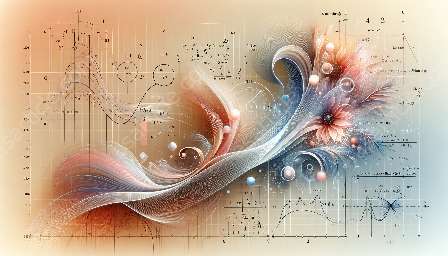Experimental error, data analysis, and error analysis are essential concepts in the fields of mathematics and statistics. They provide insights into the uncertainties and limitations associated with experimental data, as well as the methods to analyze and interpret such data effectively. This topic cluster explores these concepts in detail, offering practical examples and real-world applications to help you understand the significance and relevance of experimental error and data analysis.
Experimental Error
Experimental error refers to the uncertainties and discrepancies that arise during the conduct of an experiment. These errors can stem from various sources, including equipment limitations, human factors, environmental conditions, and inherent variability in the system being studied. Understanding and quantifying experimental error is crucial for ensuring the reliability and accuracy of experimental results.
There are two main types of experimental errors: systematic errors and random errors. Systematic errors are consistent and repeatable, often originating from flaws in the experimental setup or measurement process. On the other hand, random errors are unpredictable and can fluctuate from one measurement to another, arising from factors such as noise and fluctuations in the experimental environment.
Identifying and minimizing experimental errors is a fundamental aspect of good experimental design. By acknowledging and addressing potential sources of error, researchers can enhance the quality and validity of their experimental findings.
Data Analysis
Data analysis is the process of inspecting, cleaning, transforming, and modeling data to derive meaningful insights and support informed decision-making. It involves various techniques and methodologies aimed at uncovering patterns, trends, and relationships within datasets. In the context of experimental data, effective data analysis plays a critical role in extracting valuable information and drawing reliable conclusions from experimental measurements.
One of the key objectives of data analysis is to quantify and account for uncertainties, including experimental errors. By applying statistical methods and error analysis techniques, researchers can evaluate the robustness of their data, assess the impact of errors, and make informed inferences about the underlying phenomena being studied.
Error Analysis
Error analysis encompasses the systematic study of uncertainties and errors in experimental measurements and data. It involves the application of mathematical and statistical tools to characterize, quantify, and interpret the sources of error present in experimental observations.
Through error analysis, researchers aim to understand the limitations of their measurements, estimate the magnitude of errors, and assess the reliability of their experimental results. This process often involves error propagation, uncertainty quantification, and the evaluation of measurement precision and accuracy.
Intersection of Mathematics and Statistics
The concepts of experimental error and data analysis are inherently linked to the fields of mathematics and statistics. Mathematics provides the foundational framework for understanding and modeling uncertainties, while statistics offers valuable tools for analyzing and interpreting experimental data within a probabilistic framework.
Probability theory, statistical inference, regression analysis, and hypothesis testing are just a few examples of mathematical and statistical techniques that are central to error analysis and data interpretation. These tools enable researchers to account for variability, assess the significance of observed effects, and draw sound conclusions based on empirical evidence.
Real-World Applications
The significance of experimental error and data analysis extends across numerous domains, including scientific research, engineering, healthcare, finance, and environmental studies. For instance, in scientific experiments, understanding and mitigating experimental errors is essential for ensuring the credibility of research findings and the reproducibility of scientific studies.
Furthermore, data analysis techniques are employed in fields such as market research, quality control, and risk assessment to extract actionable insights from large volumes of data and make informed decisions. By leveraging robust statistical methods and error analysis principles, businesses and organizations can optimize processes, identify trends, and gain a competitive edge in their respective industries.
In Conclusion
Experimental error and data analysis are indispensable components of the scientific and analytical toolkit. By embracing the complexities of experimental uncertainties and harnessing the power of statistical analysis, researchers and analysts can extract valuable knowledge from data and build a deeper understanding of the phenomena under investigation. This topic cluster serves as a gateway to explore the multifaceted world of experimental error, data analysis, and error analysis, illustrating their vital role in driving knowledge creation and empirical discovery across a wide range of disciplines and applications.

